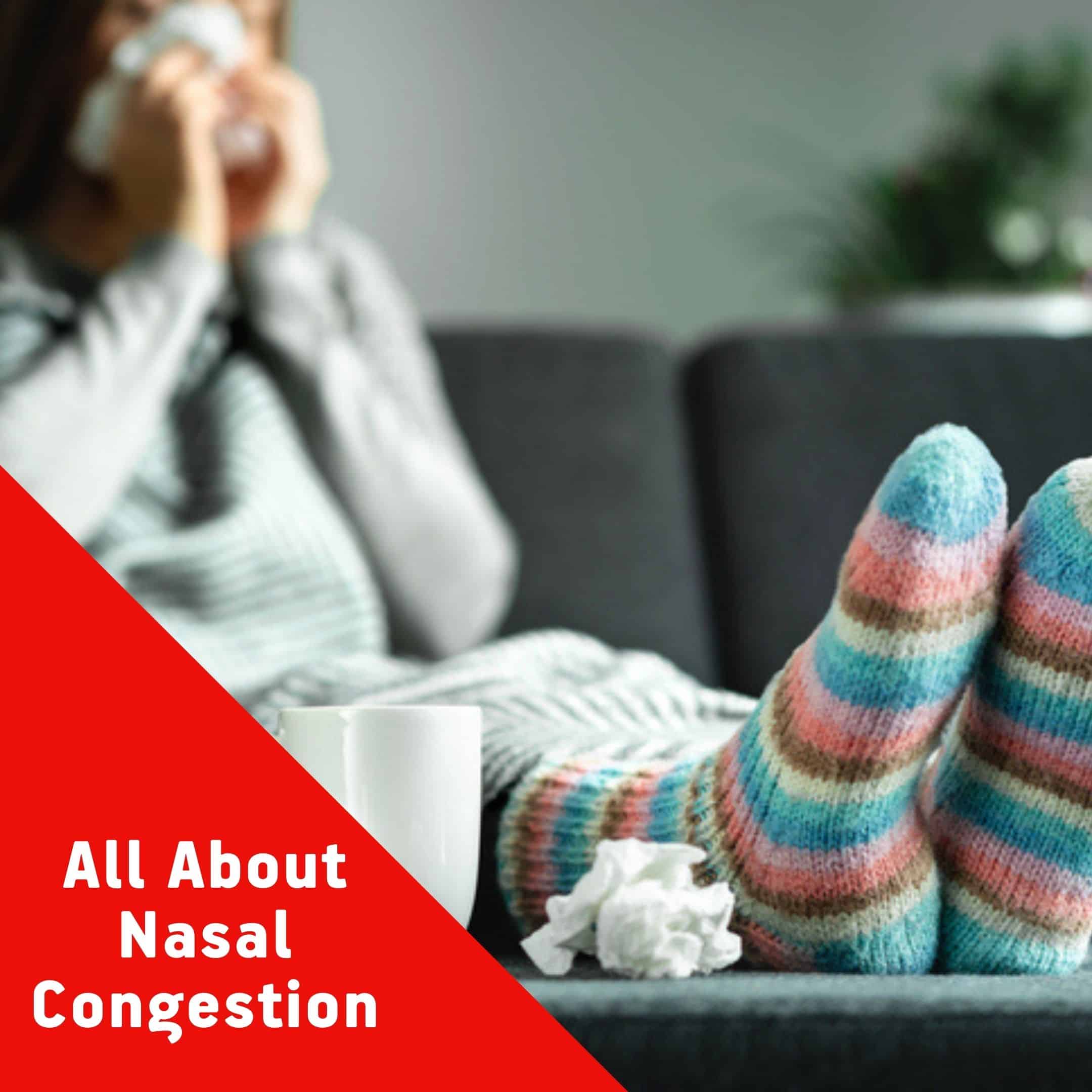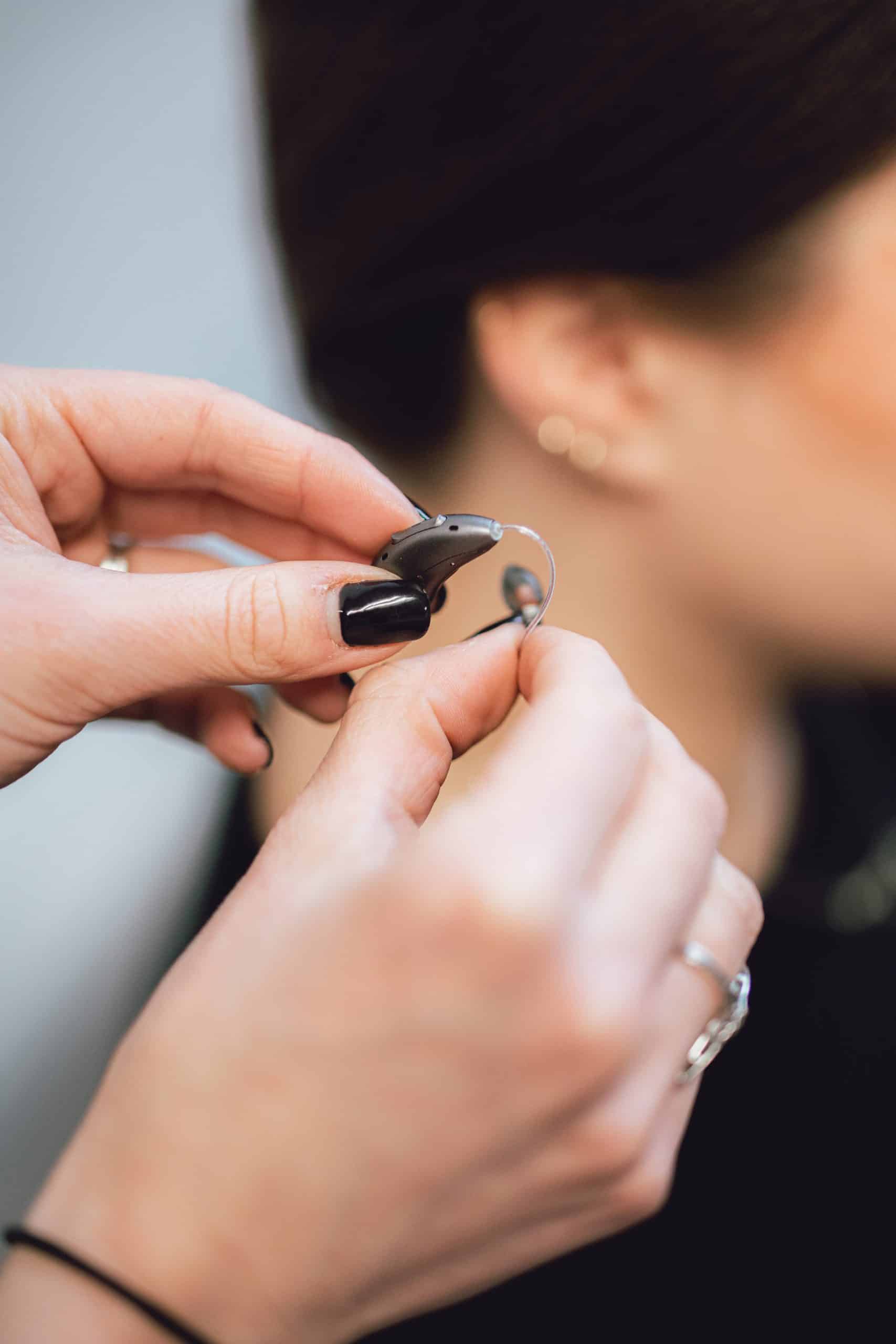Every year, more than 50 million Americans find themselves battling allergies, and spring marks the…

All About Nasal Congestion
There are two words we hear a lot at ExcelENT all year round, but especially during these cold winter months: “nasal congestion.” While it can be short lived, and it may resolve quickly without intervention, it often comes out of nowhere and it’s usually the first of many symptoms.
Nasal congestion can be tricky though, because there are many causes. Our doctor, Dr. Davis, wants to help you figure out not only the cause, but also a treatment plan so that you can get back to living your life without a stuffy nose!
Causes of Nasal Congestion
Nasal congestion, which many of us refer to as a “stuffy nose,” occurs when the blood vessels inside the nose (in addition to the adjacent tissues) become inflamed and swollen with excessive fluid. This fluid is what gives the nose the feeling of being “stuffy.”
Symptoms of nasal congestion include stuffy/runny nose, nasal pain, mucus buildup, and/or nasal swelling. There could be a number of issues causing your nasal congestion symptoms, including but not limited to:
- Allergies
- Benign tumors
- Chronic sinusitis
- Common cold
- Deviated septum
- Flu
- Hay fever
- Nasal polyps
- Sinus infection
- Various irritants, like tobacco smoke
With so many possible causes, it is important to seek medical attention, especially if your symptoms have lasted several days without relief, or new symptoms have appeared.
Treatments for Nasal Congestion: Home Remedies
A good place to start may be with home remedies. Some of our patients do find that these work to alleviate symptoms.
- Sleep with a humidifier at night. A humidifier adds moisture to the air, which can help break up mucus and soothe inflamed nasal passages.
- Place a warm cloth over your face. This can also help sooth your nasal passages. You might also want to try this method while using pillows to prop your head up during the night, which can help you breathe easier.
- Take a hot shower. This can assist in clearing up your nasal congestion, as the steam from the shower can improve breathing by allowing the mucus to drain through the nose.
Nasal Rinsing
Another great option you can do at home is nasal rinsing, which is the process of flushing your sinuses with a saline (saltwater) rinse. One of your nose’s primary functions is to filter air before it enters your lungs. The mucus lining your sinuses is vital to the filtration process. However, dryness and inflammation make it hard for mucus to drain, which leads to congestion and pressure. Nasal irrigation thins mucus and cleanses your nasal passages. The saline solution used in a rinse also helps restore moisture in dry sinuses.
Performing a nasal rinse is simple, and we recommend the pre-measured sinus rinse packets from NeilMed that you mix with eight ounces of lukewarm distilled water. NeilMed offers several types of irrigation devices including squeeze bottles, a neti pot, and a battery-operated cordless pulsating nasal washer. Read more about how to perform a nasal rinse in this article.
Treatments for Nasal Congestion: When to See A Doctor
If home remedies don’t work, it may be time to see Dr. Davis so that he can give you a more specific diagnosis and treatment plan. This might include:
- Antibiotics
- Nasal spray, which includes an antihistamine
- Nasal steroid
- Prescription-strength decongestants
- Surgery, if caused by nasal polyps or tumors
- Non-surgical treatment options
Nasal Polyps
For some people, the source of long-lasting congestion is nasal polyps. These are soft, painless, benign growths inside the nasal passages. When polyps are small, you may not know they’re there. However, polyps that grow in clusters can block the nasal passages and inhibit sinus drainage causing congestion.
Nasal polyps can develop in people of all ages, but they are most common in young adults and middle-age adults. Patients with prolonged inflammation from allergies, infections, or chronic sinusitis have an increased risk of developing obstructive nasal polyps. Unfortunately, polyps are a chronic problem. It’s likely that once they occur, they will persist throughout a patient’s life.
Treatment often starts with a nasal steroid spray to reduce polyp inflammation, and we may also recommend nasal rinses, but these are temporary solutions. The next option is surgical removal of the polyps, also known as sinus surgery.
We are excited that we have a new sinus implant called SINUVA, which is a nonsurgical treatment option if a patient’s polyps return after surgery. This innovative treatment involves a sinus implant made of bioabsorbable polymers. It delivers an anti-inflammatory corticosteroid right into the polyps. The medicine shrinks the polyps, opening a patient’s airway and allowing better sinus drainage.
Address Nasal Congestion with ExcelENT of Alabama
Nasal congestion is common, but it shouldn’t be long-lasting. If you are experiencing persistent congestion, we’d love to help you find the cause and make a treatment plan. We are always happy to answer questions about nasal congestion and any other ear, nose, and throat issues. Schedule an appointment online, or call to discuss coming in at a time that’s best for you: 205-988-6858.


